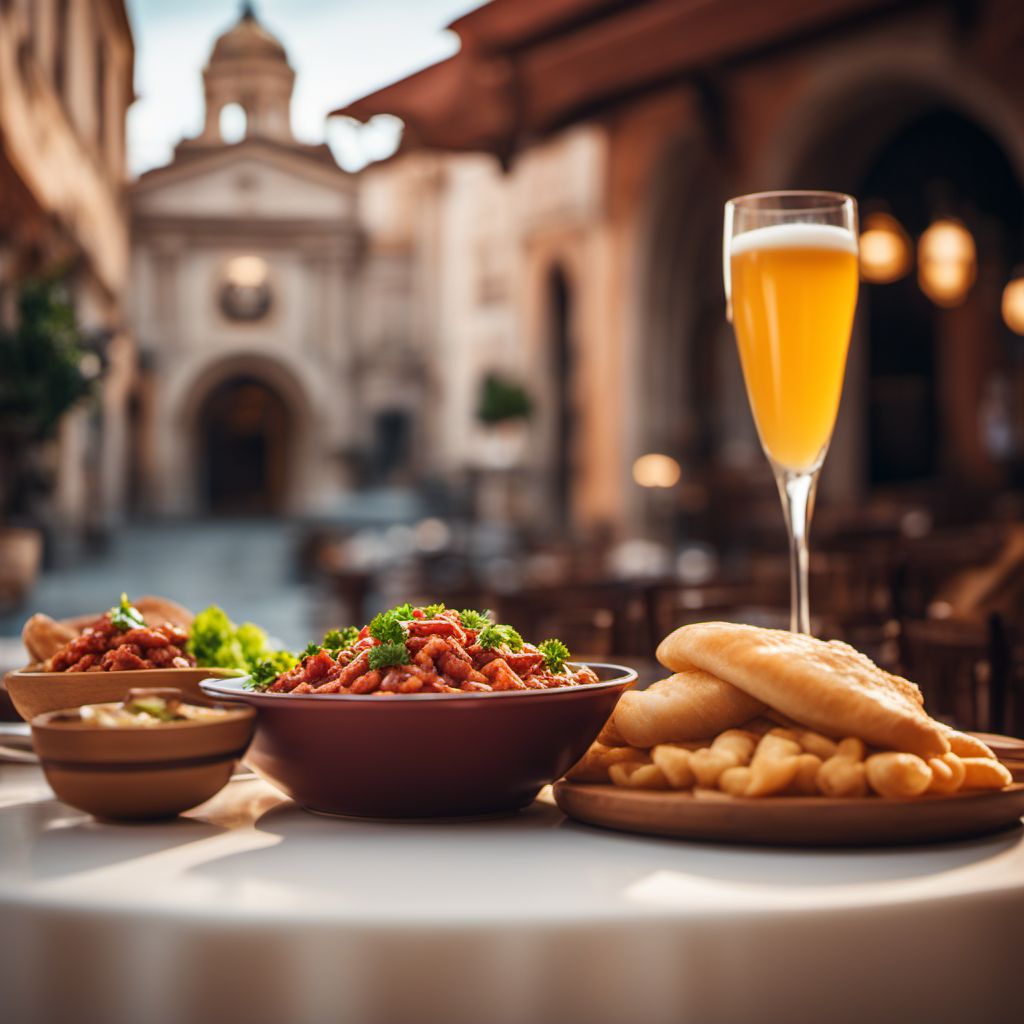
Cuisine
Balkan cuisine
Balkan cuisine is characterized by its use of fresh, seasonal ingredients, bold flavors, and hearty, filling dishes. Many Balkan dishes feature grilled meats, stews, and soups, as well as a variety of breads and pastries. The cuisine is also known for its use of spices like paprika, cumin, and coriander, as well as herbs like dill, parsley, and mint. Popular dishes include cevapi (grilled meat sausages), burek (a savory pastry filled with meat or cheese), and goulash (a hearty stew made with beef or pork).
Typical ingredients
Beef, Pork, Lamb, Chicken, Potatoes, Onions, Peppers, Tomatoes, Eggplant, Zucchini, Cheese, Yogurt, Sour cream, Paprika, Cumin, Coriander, Dill, Parsley, Mint
Presentation and garnishing
Balkan dishes are often served family-style, with a variety of small plates and meze (appetizers) shared among diners. Presentation is simple and rustic, with an emphasis on the natural beauty of the ingredients. Garnishes may include fresh herbs, lemon wedges, or a dollop of sour cream or yogurt.
Balkan cuisine is known for its strong coffee, which is often served with a cube of sugar or a piece of Turkish delight. The region is also famous for its rakija, a fruit brandy that is often served as an aperitif or digestif.
More cuisines from this region...
Greek cuisine, Serbian cuisine, Montenegrin cuisine, Macedonian cuisine, Kosovan cuisine, Croatian cuisine, Bosnian cuisine, Albanian cuisine, Aromanian cuisine
History
Balkan cuisine has been shaped by a variety of cultural influences over the centuries, including Ottoman, Austro-Hungarian, and Slavic. The region's location at the crossroads of Europe and Asia has also played a role in shaping its culinary traditions. Many Balkan dishes have their roots in ancient Roman and Byzantine cuisine, while others reflect the region's Ottoman past. In recent years, Balkan cuisine has gained international recognition for its bold flavors and hearty, comforting dishes.
Cultural significance
Food is an important part of Balkan culture, with many traditional dishes served at festivals and celebrations throughout the year. Mealtimes are also a time for socializing and connecting with family and friends. Balkan cuisine is closely tied to the region's agricultural traditions, with many dishes featuring locally grown produce and livestock.
Health benefits and considerations
Balkan cuisine is generally considered to be healthy, with a focus on fresh, whole foods and minimal processing. Many dishes are also high in protein and fiber, making them a good choice for those looking to build muscle or maintain a healthy weight. However, some traditional dishes may be high in fat or sodium, so it's important to enjoy them in moderation.
Balkan cuisine dishes Browse all »
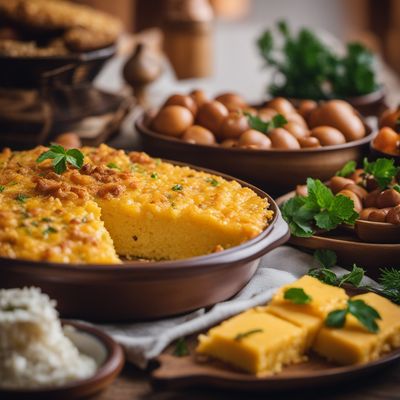
Kačamak
Kačamak is a traditional Balkan dish that is made with cornmeal and cheese. It is a savory dish that is perfect for a hearty meal. This dish is easy to make and is perfect for...

Buredžici
Buredzici
Buredžici are a traditional Bosnian pastry made with a dough of flour, water, and sometimes yogurt. They are typically served as a snack or as a side dish.

Smočani kačamak
Smočani Kačamak
Smočani kačamak is a traditional Montenegrin dish made from cornmeal and cheese. It is often served as a main dish.
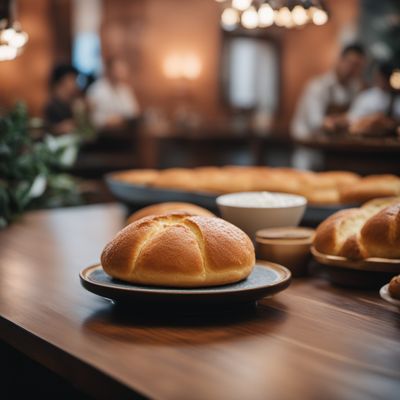
Lepinja
Lepinja is a traditional Serbian bread that is soft and fluffy on the inside with a crispy crust on the outside. It is perfect for sandwiches or as a side to stews and soups.

Pazarske mantije
Pazarske mantije is a traditional Bosnian dish that is popular in the Balkans. It is a type of pastry that is filled with meat and vegetables and baked until crispy and golden brown.

Krompiruša
Krompirusa
Krompiruša is a Serbian potato pie that is typically served as a main dish. It is made with a filling of mashed potatoes, onions, and sometimes meat, and is baked in a flaky...

Kashkaval pane
Kashkaval Pane
Kashkaval pane is a traditional Balkan dish made with kashkaval cheese that is breaded and fried. It is a popular appetizer or snack that is crispy on the outside and gooey on...
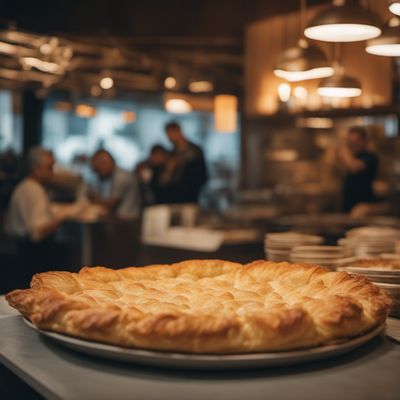
Burek sa sirom
Burek sa sirom is a savory pastry that is popular in the Balkans and Middle East. It is made with phyllo dough and a filling of cheese and eggs.
Balkan cuisine recipes Browse all »
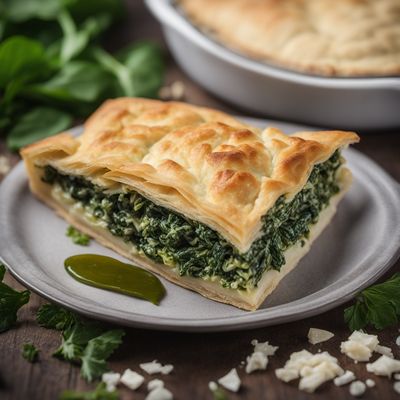
Balkan-style Spinach Pie
Savory Delight: Balkan Spinach Pie with a Flaky Twist
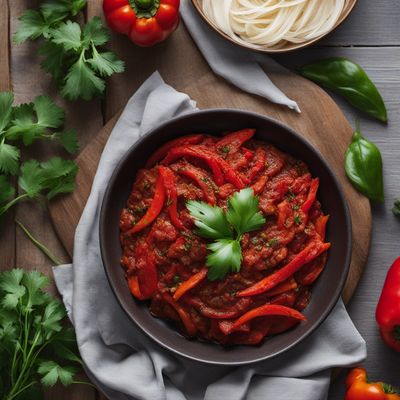
Balkan-Inspired Roasted Vegetable Spread
Savor the Flavors of the Balkans with this Roasted Vegetable Delight

Balkan-style Coconut Custard Tart
Velvety Delight: Balkan Coconut Custard Tart
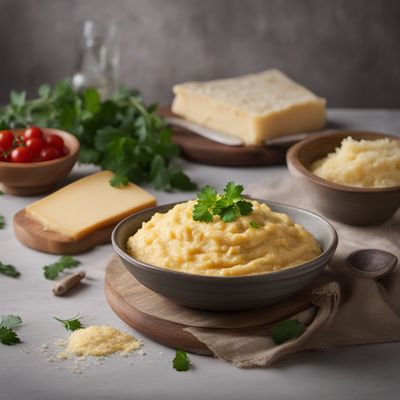
Balkan Cornmeal Mash with Cheese
Savory Balkan Delight: Creamy Cornmeal Mash with Cheese

Balkan-style Grilled Sardine with Buckwheat Noodles
Savory Balkan Delight: Grilled Sardine and Buckwheat Noodles
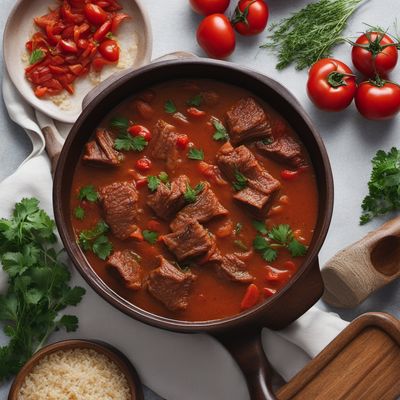
Balkan-style Spicy Beef Tripe Stew
Fiery Balkan Delight: Spicy Beef Tripe Stew
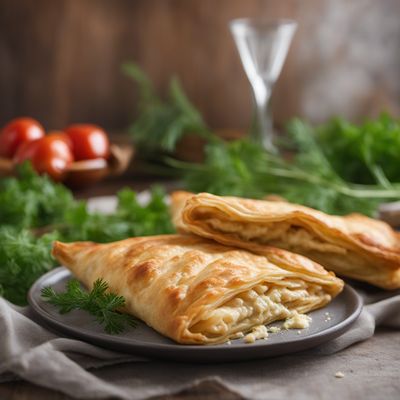
Balkan Cheese Burek
Savory Delight: Balkan Cheese Burek - A Flaky and Cheesy Delicacy
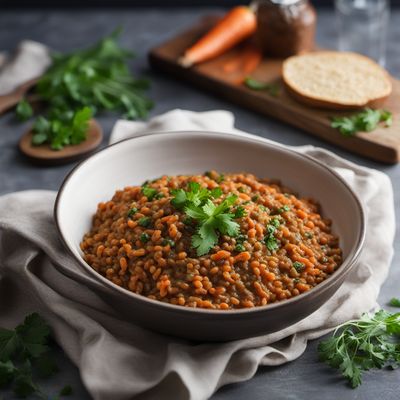
Balkan-style Lentils with Noodles
Hearty Balkan Lentil Delight

Balkan Mango Soup
Savor the Balkan Breeze: Mango Soup with a Twist
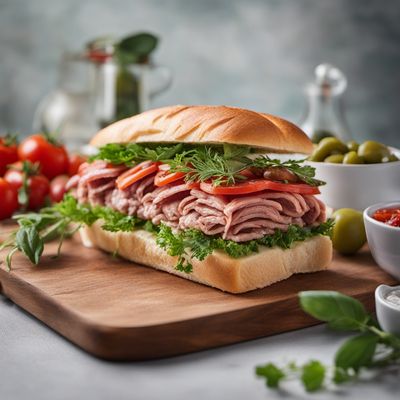
Balkan-inspired Stuffed Sandwich
Savory Delight: Balkan-inspired Stuffed Sandwich

Balkan-style Sweet Cheese Rolls
Delicious Balkan Cheese Delights

Balkan Cheese Pie with Spinach and Feta
Savory Delight: Balkan Spinach and Feta Cheese Pie